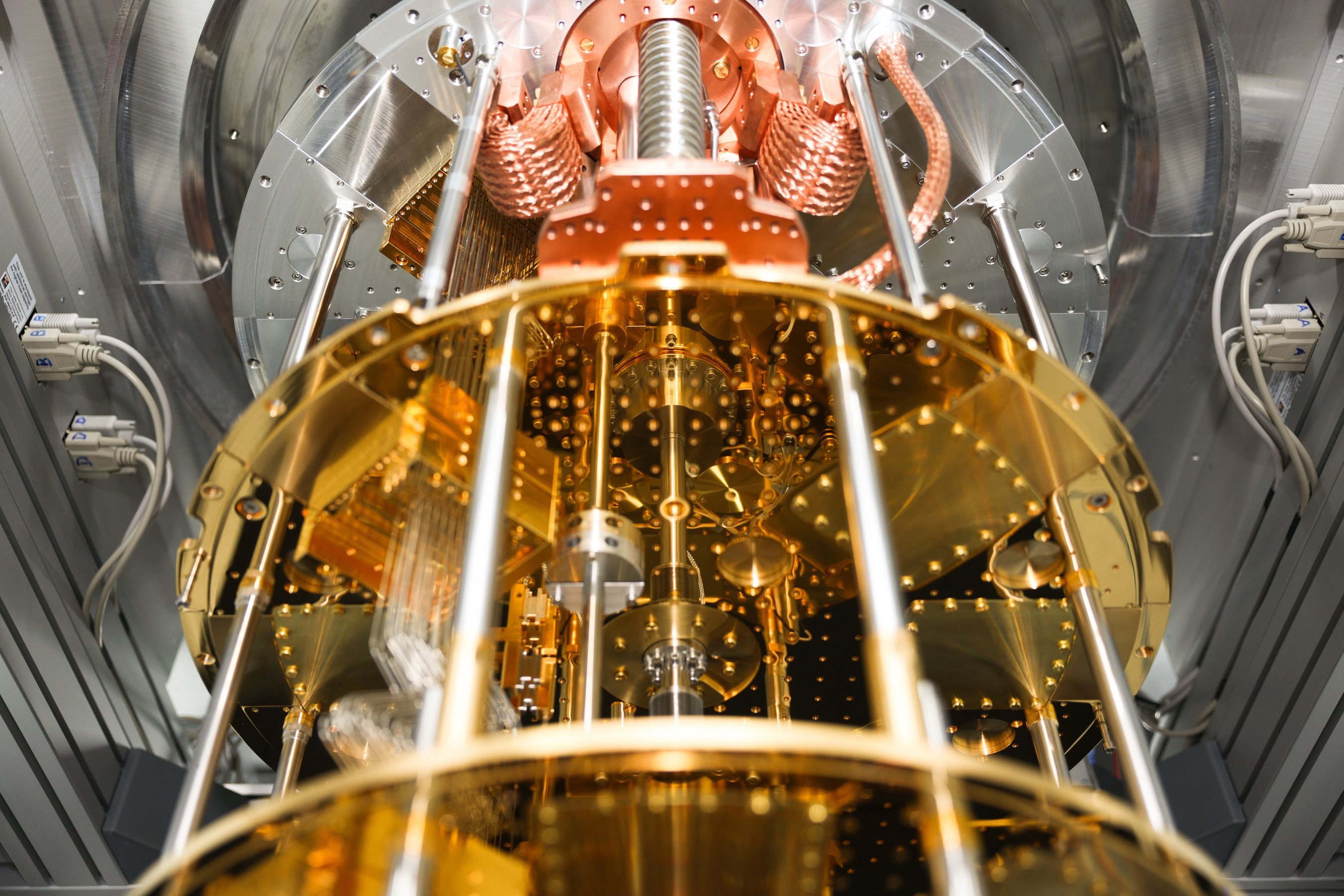
Located at Baidu’s Quantum Computing Hardware Lab in Beijing, “Qian Shi” is Baidu’s first industry-level superconducting quantum computer.
Baidu, Inc. (NASDAQ: BIDU and HKEX: 9888) ("Baidu" or the "Company"), a leading AI company with strong Internet foundation, today announced its first superconducting quantum computer that fully integrates hardware, software, and applications. On top of this, Baidu also introduced the world's first all-platform quantum hardware-software integration solution that provides access to various quantum chips via mobile app, PC, and cloud. Launched at Quantum Create 2022, a quantum developer conference held in Beijing, this new offering paves the way for the long-awaited industrialization of quantum computing.
Located at Baidu’s Quantum Computing Hardware Lab in Beijing, “Qian Shi” is Baidu’s first industry-level superconducting quantum computer.
Located at Baidu’s Quantum Computing Hardware Lab in Beijing, “Qian Shi” is Baidu’s first industry-level superconducting quantum computer.
A revolutionary technology that harnesses the laws of quantum mechanics to solve problems beyond the reach of classical computers, quantum computing is expected to bring ground-breaking transformations in fields like artificial intelligence (AI), computational biology, material simulation, and financial technology. However, a significant gap remains between quantum devices and services.
"Qian Shi"[1], Baidu's industry-level superconducting quantum computer incorporates its hardware platform with Baidu's home-grown software stack[2]. On top of this infrastructure are numerous practical quantum applications, such as quantum algorithms used to design new materials for novel lithium batteries or simulate protein folding.
Qian Shi offers a stable and substantial quantum computing service to the public with high-fidelity 10 quantum bits (qubits) of power. In addition, Baidu has recently completed the design of a 36-qubit superconducting quantum chip with couplers, which demonstrates promising simulation results across key metrics.
As quantum computing continues to experience remarkable progress, a large number of enterprises are exploring how quantum computing will contribute to their real-world businesses. This has led to the development of "Liang Xi"[3], the world's first all-platform quantum hardware-software integration solution that offers versatile quantum services through private deployment, cloud services, and hardware access. Liang Xi is able to plug into Qian Shi and other third-party quantum computers, including a 10-qubit superconducting quantum device and a trapped ion quantum device developed by the Chinese Academy of Sciences. Users can conveniently visit these quantum computational resources via mobile app, PC, and cloud.
"With Qian Shi and Liang Xi, users can create quantum algorithms and use quantum computing power without developing their own quantum hardware, control systems, or programming languages," said Dr. Runyao Duan, Director of the Institute for Quantum Computing at Baidu Research. "Baidu's innovations make it possible to access quantum computing anytime and anywhere, even via smartphone. Baidu's platform is also instantly compatible with a wide range of quantum chips, meaning 'plug-and-play' access is now a reality."
These latest innovations are backed by Baidu Research's Institute for Quantum Computing, whose technological footprint covers a wide range of areas, including quantum algorithms and applications, communications and networks, encryption and security, error correction, architecture, measurement and control, and chip design. Across more than four years of research and development, Baidu has submitted over 200 core technology patent applications in the quantum technology field.
Located at Baidu’s Quantum Computing Hardware Lab in Beijing, “Qian Shi” is Baidu’s first industry-level superconducting quantum computer.
Located at Baidu’s Quantum Computing Hardware Lab in Beijing, “Qian Shi” is Baidu’s first industry-level superconducting quantum computer.
A revolutionary technology that harnesses the laws of quantum mechanics to solve problems beyond the reach of classical computers, quantum computing is expected to bring ground-breaking transformations in fields like artificial intelligence (AI), computational biology, material simulation, and financial technology. However, a significant gap remains between quantum devices and services.
"Qian Shi"[1], Baidu's industry-level superconducting quantum computer incorporates its hardware platform with Baidu's home-grown software stack[2]. On top of this infrastructure are numerous practical quantum applications, such as quantum algorithms used to design new materials for novel lithium batteries or simulate protein folding.
Qian Shi offers a stable and substantial quantum computing service to the public with high-fidelity 10 quantum bits (qubits) of power. In addition, Baidu has recently completed the design of a 36-qubit superconducting quantum chip with couplers, which demonstrates promising simulation results across key metrics.
As quantum computing continues to experience remarkable progress, a large number of enterprises are exploring how quantum computing will contribute to their real-world businesses. This has led to the development of "Liang Xi"[3], the world's first all-platform quantum hardware-software integration solution that offers versatile quantum services through private deployment, cloud services, and hardware access. Liang Xi is able to plug into Qian Shi and other third-party quantum computers, including a 10-qubit superconducting quantum device and a trapped ion quantum device developed by the Chinese Academy of Sciences. Users can conveniently visit these quantum computational resources via mobile app, PC, and cloud.
"With Qian Shi and Liang Xi, users can create quantum algorithms and use quantum computing power without developing their own quantum hardware, control systems, or programming languages," said Dr. Runyao Duan, Director of the Institute for Quantum Computing at Baidu Research. "Baidu's innovations make it possible to access quantum computing anytime and anywhere, even via smartphone. Baidu's platform is also instantly compatible with a wide range of quantum chips, meaning 'plug-and-play' access is now a reality."
These latest innovations are backed by Baidu Research's Institute for Quantum Computing, whose technological footprint covers a wide range of areas, including quantum algorithms and applications, communications and networks, encryption and security, error correction, architecture, measurement and control, and chip design. Across more than four years of research and development, Baidu has submitted over 200 core technology patent applications in the quantum technology field.







 IonQ Achieves Industry Leading Performance on Next Generation Barium Qubits
IonQ Achieves Industry Leading Performance on Next Generation Barium Qubits